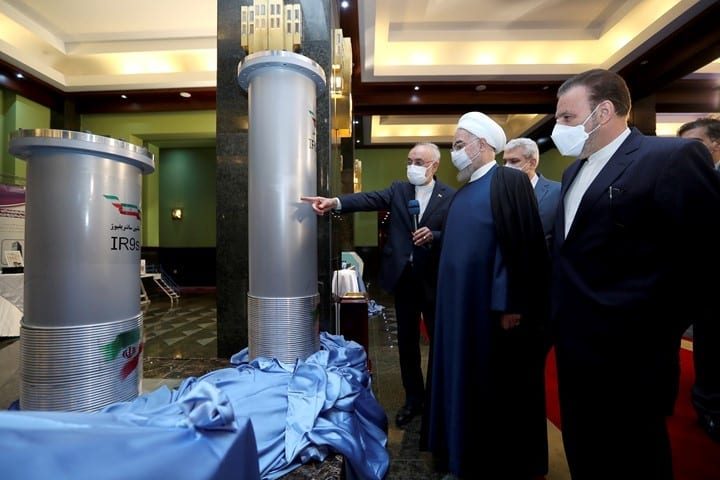
The Islamic Republic of Iran has reportedly enriched uranium to 63 percent, according to a United Nations watchdog. The report could mean that Iran, which has repeatedly threatened to remove Israel from the map, is getting dangerously close to enriching weapons-grade uranium that could be used to create nuclear weapons.
According to a report by the International Atomic Energy Agency (IAEA), Iran has enriched uranium to as high as 63 percent purity, which is higher than their announced goal of 60 percent and far higher than the 3.67 percent allowed by the Joint Comprehensive Plan of Action (JCPoA) or Iran nuclear deal, which was signed in 2015.
“According to Iran, fluctuations of the enrichment levels … were experienced,” the IAEA report stated.
“The agency’s analysis of the ES (environmental samples) taken on 22 April 2021 shows an enrichment level of up to 63 percent U-235, which is consistent with the fluctuations of the enrichment levels (reported by Iran).”
The news comes while Iran meets with Russia, China, France, Britain and Germany — and indirectly with the United States — in Vienna to discuss a return to the terms of the JCPoA in return for an easing of economic sanctions on the Islamic Republic. President Joe Biden is eager to get Iran to return to the deal signed by Barack Obama but Iran has refused direct talks with the United States.
Former president Donald Trump announced the U.S. withdrawal from that agreement in 2018. At the time, Trump referred to the JCPoA as a “horrible one sided deal that should never, ever have been made.”
The parties in Vienna hope to reach some kind of agreement by May 21 when an agreement between Tehran and the IAEA to continue monitoring Iran’s enrichment progress expires.
At 63 percent enrichment, only a short technical step remains for the centrifuges to reach the 90 percent purity level to make the uranium weapons-grade.
On April 11, an explosion at Iran’s Natanz uranium enrichment site, causing a blackout and reportedly destroying thousands of the delicate centrifuges used to enrich uranium. The incident reportedly set Iran’s enrichment program back by nine months. Iran immediately blamed Israel for what it called “sabotage” and “nuclear terrorism.”
“Condemning this despicable move, the Islamic Republic of Iran emphasizes the need for the international community and the International Atomic Energy Agency to deal to deal with this nuclear terrorism,” Ali Akbar Salehi, Iran’s top nuclear official, said at the time.
Israeli media reported that the blast was caused by a bomb planted by unknown perpetrators, but Israel has not publicly claimed responsibility for that incident.
Israel has repeatedly said that it will not allow Iran to develop nuclear weapons. As recently as April 12 – the day after the explosion at the Natanz facility – Israeli Prime Minister Benjamin Netanyahu addressed the subject.
“Iran has never given up its quest for nuclear weapons and the missiles to deliver them,” Netanyahu said. “I will never allow Iran to obtain the nuclear capability to carry out its genocidal goal of eliminating Israel.”
Even with Israel currently engaged with Hamas in Gaza, we can be certain it hasn’t forgotten about Iran’s ambitions. As the Islamic state grows ever closer to obtaining its own nuclear weapon, the spectre of an even more serious conflict between the two enemies grows more ominous by the minute.




